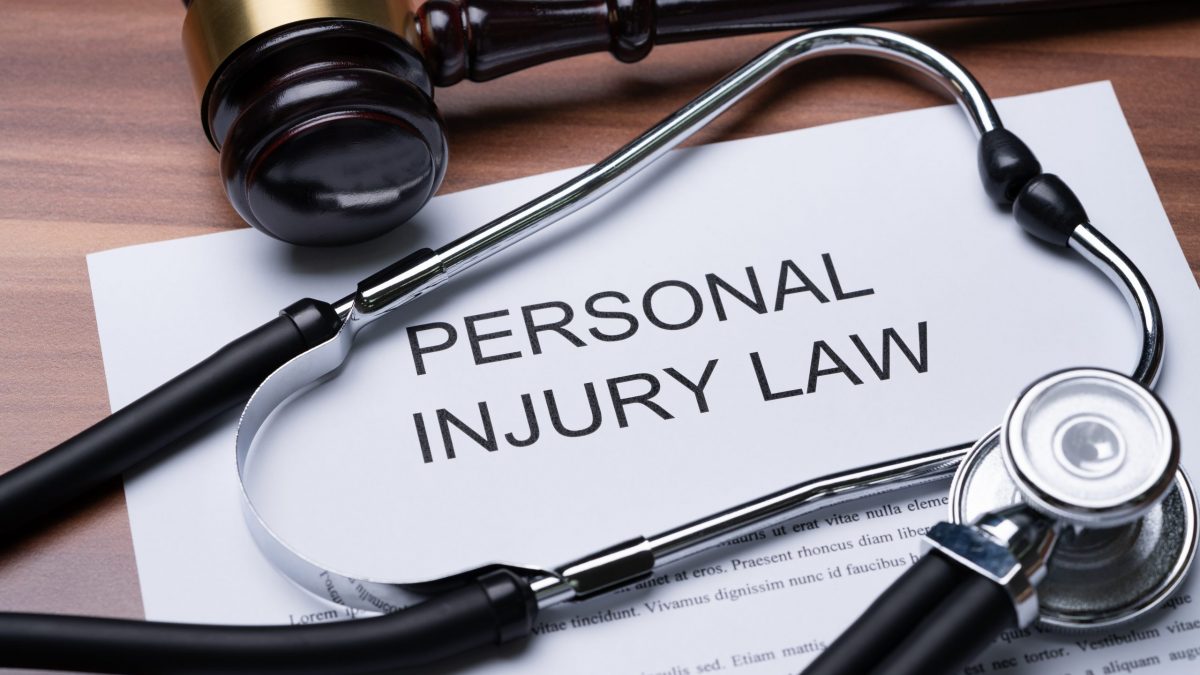
Blockchain: A Cure-All for Countries’ Biggest Woe, COVID-19 and Keeping the Motion of Globalisation Going?
February 15, 2022
FirstPort Property Services Ltd v Settlers Court RTM Company and others
February 16, 2022A personal injury claim is a formal process of recovering compensation for an individual’s injury due to someone else’s negligence. This procedure is normally designed to help put people back in the same financial position as if the personal injury never happened.
Personal injury claims cover an array of scenarios, including traffic accidents, workplace accidents, sports injuries, accidents in public spaces, accidents in supermarkets, restaurants, medical injuries, and injuries sustained during an assault. Victims working with an experienced solicitor can make a personal injury claim on a no-win, no fee basis, giving them peace of mind that they will not have to pay any legal consequences if their claim isn’t successful.
The settlement processes
It’s impossible to state exactly how long a personal injury claim settlement process will take. Normally, cases may take just a few months. We will explain how the personal injury claim settlement process works and help you understand what’s at stake plus who does what and when.
The moment a personal injury claim takes place, the victim is recommended to get in contact with a professional personal injury attorney. If she or he qualifies and decides to go ahead with the claim, the solicitor will take on the case.
The case will be carefully built on a no-win, no-fee basis, which means if the claim doesn’t succeed, the victim won’t have to support any financial consequence. However, during the consultation, the solicitor will investigate the cause of the accident and how it has affected the victim’s personal and financial health. Aside from the pain and suffering, the victim may have also lost his income as a result of being off duty, for example. The solicitors will require specific evidence to support this claim, such as photographs and medical records.
The pre-action protocols
Having precisely valued the claim and armed with all the injury and accident details ( plus the financial losses the victim may have endured), the solicitor will then initiate the pre-action protocols. This means everything the victim has said and done will be summarised in a Claim Notification Claim. It’s an essential document that forms the core of the claim, detailing the accident and why the victim thinks the other side is responsible for the accident.
When it’s ready, the solicitor will then submit the claim to the other party’s insurance company, officially informing them of the victim’s intention to sue them for damages.
According to PersonalInjuryClaimScare.org.uk, when a personal injury victim claims for injuries sustained in a traffic accident, the solicitor will send the notification claim to the other side’s insurer, not the person or organisation involved.
How long does it take to settle a personal injury claim?
The average time it takes to settle a personal injury claim depends on the individual circumstances. For instance, the following types of claims take:
- Workplace accident: 6-12 months
- Road traffic accident: 4-9 months
- Medical negligence: 12-36 months
- Industrial disease: 12-18 months
- Public liability: 6-12 months
The Injury type does not affect the settlement period
The type of illness or injury a victim develops following an accident, or negligent medical treatment doesn’t affect the time it will take for a claim to settle.
The personal injury attorney will take time to arrange an independent medical assessment in order to evaluate the severity of the injuries. If the injuries are minor, the victim will be able to attend a medical within a few weeks of the date of the injury, but if she or he has suffered severe injuries, they may need to wait several months until they’ve recovered enough to attend a medical assessment.
In situations where clients experience traumatising, life-changing injuries, they may need to attend numerous medical evaluations throughout their recovery period – which normally takes several years.
Medical evaluations are critical to helping the personal injury attorney obtain an accurate view of the extent of the injuries, how long the recovery will take, and what treatment will be necessary. For the personal injury victim, this may serve as a reason to claim maximum compensation for the injuries and pain sustained.
Claims may take longer for multiple injuries
Individuals who’ve sustained multiple injuries following an accident may need to wait longer for their claims to settle. The only reason being that certain types of injuries take longer to heal than others, and therefore, it may take longer to evaluate the long-term effects of the injury. For psychological injuries, on the other hand, it may take longer to determine what the long-term effects will be.
If the victim wants to claim settled much earlier, then he or she should be aware that by doing so you are likely to receive a lower compensation amount.
Often the defendant’s insurance company will offer the victim an early compensation offer in order to avoid paying a larger amount in the long run. The victim can either accept the offer or require his or her solicitor to negotiate a larger and more satisfying settlement figure.
Solicitors are experienced in handling all types of personal injury claims, from slips, trips and falls, road traffic accidents to accidents in the workplace. An experienced personal injury attorney should advise the injured party when it is appropriate to accept a settlement offer and when it is worth denying a settlement in order to negotiate a higher amount.
Compensation payment
If the victim has accepted the order or the court has made a decision, the final stage is to make decisions about how you will get your compensation payment.
Normally, victims obtain their compensation as a lump sum payment the moment the claim end, minus any temporary payments he or she has already had
Sometimes, the court decides to offer compensation as monthly or yearly payments. However, this often happens if the compensation must cover long-term care expenses.





